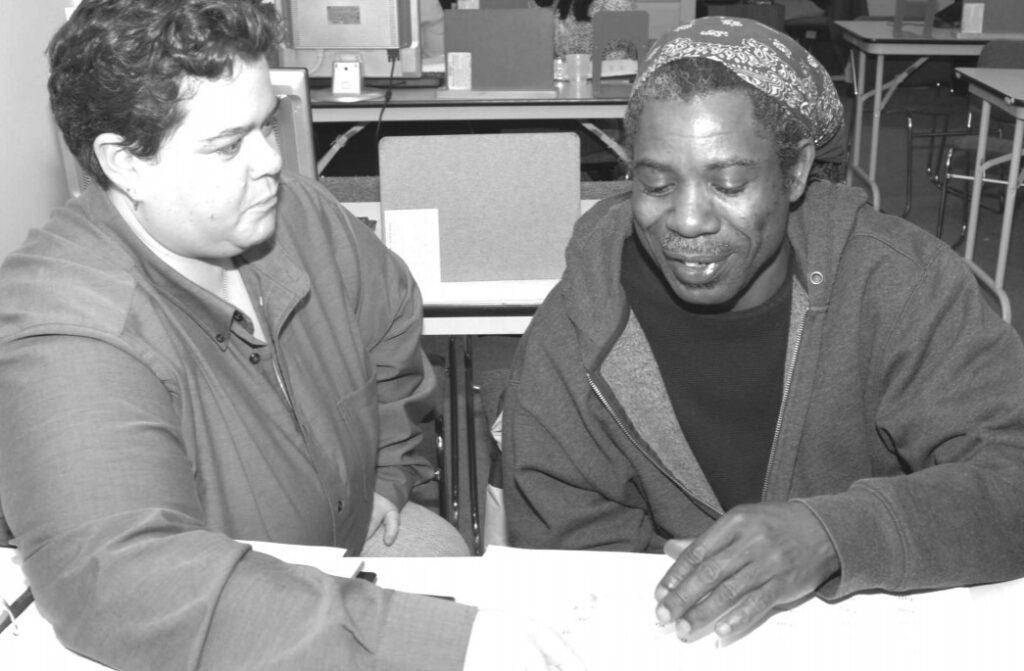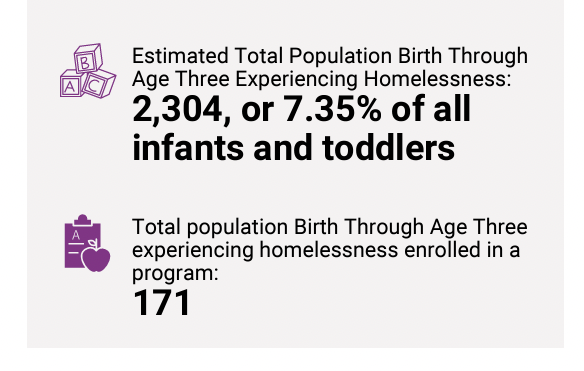In a small classroom a teacher prepares for class surrounded by walls covered with posters labeled with the parts of speech, vowel teams and vowel options. In the corner of the room sits a globe, next to it a spelling game. In the front of the classroom, the teacher writes “A, E, I, O, U.”
Suddenly, the room is filled with laughter and joking as the students pile in and take their seats. The youngest student is 19.
“It’s something we don’t like to talk about,” said Terry Algire, executive director of the Washington Literacy Council, whose mission is to increase adult literacy in the District. “If you talk about children who are struggling with reading, you have these wonderful pictures of adults reading with them. It makes you feel good. If you look at a class of adults who are having trouble with reading, it doesn’t have the same impact.”
One in seven adults in the United States have below basic reading and writing skills, according to the U.S. Department of Education.
“Illiteracy among adults is a quiet crisis…our nation needs to do better,” said Senator Thomas Harkin of Iowa in his award acceptance letter at the annual Pro-Literacy award ceremony.
In September, pro-literacy organizations gathered at the Rayburn house office building in D.C. for their annual literacy leadership award ceremony and formation of the first-ever house adult literacy caucus. Together several organizations are working to help provide adults with these basic skills and more.

“Literacy is essential,” said Algire. “If you can’t read you have nowhere to go, the bar for literacy keeps going up and more and more people keep falling behind.”
Many adults are afraid to enter into adult literacy programs because they are ashamed and afraid to let their friends and families know they have a problem, said Barry Benson, vice president of ProLiteracy, the world’s largest nonprofit advocacy organization offering literacy programs.
“Shame is the major impediment…it makes it hard to identify adults who have below basic literacy skills,” Benson said.
“Literacy is a lever, it raises all boats,” said Heidi Silver-Pacuilla, who will be taking over as president of National Coalition for Literacy at the end of the year.
Adult learners who enter into a literacy program learn to read and are equipped with the skills necessary to get by in a technology driven world, according to Benson.
“Students learn work related skills to be brought up to date on how to read and use a computer, as well as learning financial literacy,” said Benson.
At WLC, students go through three stages of small group classes: basic, intermediate and advanced, each three semesters long.
In the intermediate class, students learn lessons such as six syllable types, five rules for dividing syllables, vowel spelling variations, grammar, the basics of composition and vocabulary expansion.
Just like in a typical grade school class, the students take turns spelling a word on the board.
“Let me do another one,” yells out one student. “I used to run from this.”
The students take a spelling test, and then end class with the game “Password,” where one student picks a random word from a bag and has to say a word related to that word so his or her teammate can guess the original word.
“Classes are set up so that students can be successful, we take students from where they are and help them to move forward”, said Algire.
Currently, ProLiteracy is working with members of Congress to pass policies that will raise awareness of the need for adult literacy programs.
“We want to help our members suffering budget cuts be as efficient as possible when accommodating learners coming in with fewer dollars,” said Benson.
These policies will ultimately lead to more government funding for adult literacy programs. The adult education budget for D.C. programs is 5 million dollars.
Children should arrive at school with basics of pre-literacy skills. If they’re in a home where no one is reading, their skills may be so far behind entering kindergarten, that it can be almost impossible for them to catch up, according to Algire.
“There’s a continuum,” said Algire. “If we put all our subjects on one end of the continuum, we don’t make anything any better. We have to reach across the continuum, not just reach out to the child, but make sure in their family unit, and in their communities there are adults reading and literate as well.”








